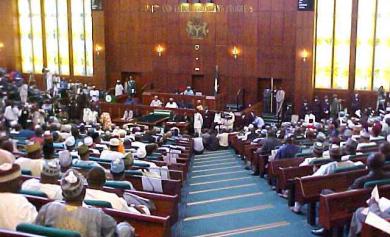
?
A bill that would have empowered the Economic and Financial Crimes Commission’ efforts to seize assets acquired by individuals through corrupt means, and to establish an agency to manage same has been buried by the National Assembly since 2008, Leadership Sunday can authoritatively reveal.
?
The bill which was co-drafted by a British firm and was brought to the Senate and the House in 2008 by the EFCC executive chairman, Mrs. Farida Waziri.
?Investigations revealed that the bill is not even listed on the new compendium of bills expected to be considered in the first lap of the 7th Assembly, despite lobbying and several seminars held by the EFCC for lawmakers in Abuja and Kaduna on the bill. The lawmakers are afraid the passage of the bill would affect most of them who are believed to have acquired assets through questionable means, it was found.
?
A former member of the House (2007-2011), who does not want his name in print, told leadership Sunday ?that, “The bill if passed into law would just be a tool for witch-hunt of politicians by the EFCC”.
?The Executive Bill was later adopted by Hon. Bassey Etim(PDP/Akwa Ibom), a former member of the House and the then deputy chairman of the House Committee on Drugs, Narcotics & Financial Crimes.?
?
But the then chairman of the Rules and Business Committee, who is now a senator, Ita Enang, and his senate counterpart made sure the bill was not listed until 2010, when the lawmakers unanimously threw it out, without even allowing the proposed law the benefit of a debate.
Hon. Etim in his reaction on the fate of the bill, accused the presidency of not providing adequate information on the piece of legislation.
?
“The Executive needed and still needs to educate the public on the bill. The Executive did not give sufficient information.”
But EFCC spokesman Mr. Femi Babafemi, who spoke to LEADERSHIP SUNDAY on phone, said it was wrong for the lawmakers to say they were either unaware of the legislation or the information on it was inadequate.
“I don’t think it is right (to say lawmakers were not adequately informed). At the time the law (bill) was presented to the National Assembly, members were given the draft copy to make their input, which they did. Thereafter, workshops were organized in Abuja and Kaduna for the lawmakers, to explain the working of the bill,” he said.
?
? ?The EFCC spokesman said that the co-drafters of the bill took the initial inputs of the lawmakers to the United Nations, regretted that despite much lobbying and sensitization on the bill, it was still thrown out.
On whether the opposition by lawmakers to the bill may be because they have something to hide, he said, “Well, I don’t have any opinion on that, but you are a Nigerian; so you know why.”
?
?For his part, the deputy leader of the House of Representatives, Hon. Leonard Okuweh Ogor (PDP/Isoko-Delta State), said he knew little about the issue.
“I think, first, this is a new Assembly, and we should be mindful of the rules. Like you said, the bill has not been listed (since 2008); is that what you said? Then we would look into it.?

